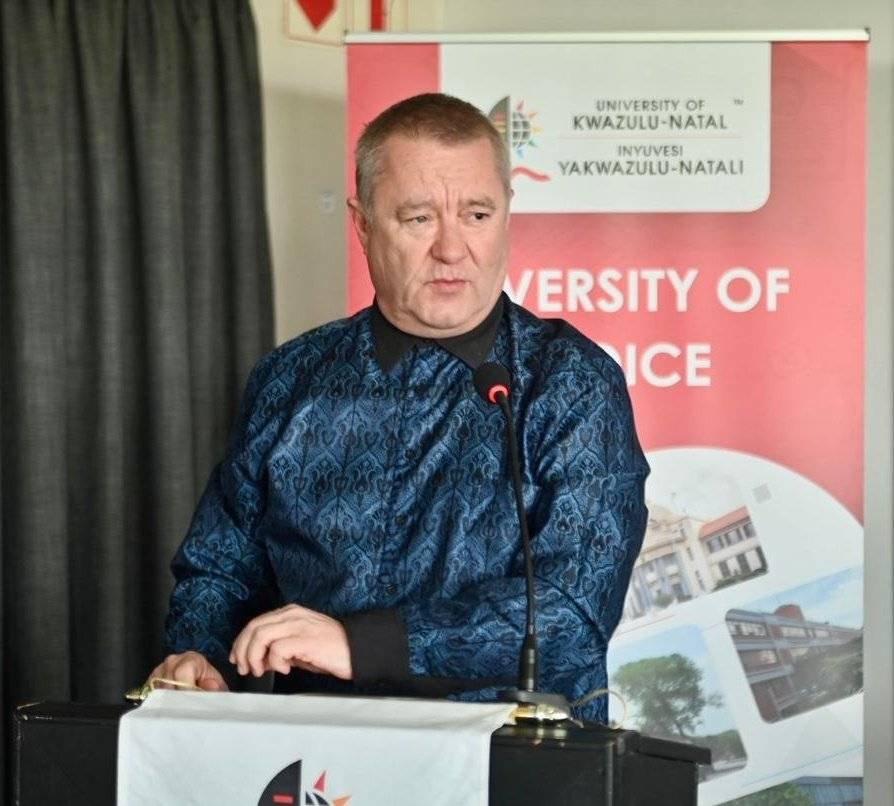
Francois Rogers, KwaZulu-Natal MEC for Finance. (×)
KwaZulu-Natal civil servants will no longer hold Christmas parties or year-end functions unless they pay for them out of their own pocket, under new cost-cutting measures introduced by KwaZulu-Natal finance MEC Francois Rogers.
Mr Rogers also shot down the province's gravy plane with new restrictions on MECs and senior civil servants to cut KwaZulu-Natal's expensive international flights, and put the brakes on spending by the Blue Light Brigade on car rentals. I put it on.
The cost-cutting measures are included in a financial directive issued by state Treasurer Carol Coetzee, calling for immediate cuts to wasteful and frivolous spending and redirecting funds to service delivery. It started on November 1st.
Chief Executive Officers and Heads of Departments were also reminded of their obligation to ensure that expenditure resulting from directions from the MEC complies with the Public Finance Management Act and avoids “underfunded commitments”.
“The purpose of cost-cutting measures is to reduce spending on 'nice-to-haves' and 'nice-to-haves.'
to direct these funds to the communities they serve,” Coetzee said. “Treasurers and accounting authorities have a responsibility to ensure that all employees are aware of the current economic realities and the need to step up efforts to improve spending efficiency.”
Departments and bodies are allowed to fill key vacancies, but they must be paid within the salary baseline and require permission from the Prime Minister and the Ministry of Finance, as well as for filling future vacancies. The Prime Minister and the Treasury must agree.
Employees will no longer be able to convert vacation time into pay, companies will be prohibited from paying performance bonuses, and chief financial officers will be told to strictly control overtime.
All departments should clean up PERSAL to remove duplicate cost centers, pay point codes, unfunded vacancies, and conduct regular head count to identify ghost employees from the system. I was ordered to do so.
External workshops and conferences will now be held in government rather than private venues, but marquees will only be considered for large events that cannot be accommodated in government or community facilities.
Team-building exercises will no longer be held along with year-end and Christmas events “unless the cost is borne by the employees themselves”.
Ministries and agencies have been instructed to conduct only essential travel and to use online meeting platforms wherever possible.
Mileage rates must be standardized and paid at the basic rate for public services, with a monthly cap of 1,750km. Employees traveling out of state will be required to use one vehicle and coordinate sharing between departments if they attend the same meeting or event.
Overseas travel has been “significantly streamlined” and will now require prior cabinet approval, and delegation sizes will be “minimized” as part of cost-cutting measures, aiming to cut travel spending by 25%.
Supply chain managers are subject to charges if they approve unpaid expenditures (items not included in the budget) or if they make payments over budget.
Office equipment and furniture are purchased at standardized rates and in line with civil servant grades across organizations and departments, while annual performance plans, speeches, annual reports, and other state documents are purchased without the need for printed documents. It will be submitted to Congress. When government documents are printed, “letterheads or covers with gold or silver embossing are not permitted.”
All ministries have been directed to ensure that ministerial vehicles are procured through central contracts and ordered to the Ministry of Finance by November 15.
The current vehicle rental cap is R70,000 per month (including 8,000 free kilometers), with additional kilometers up to R16.
Treasurers and chief executives have been instructed to report the total costs of meetings, events, international travel and sports days to Cabinet and the Treasury on a quarterly basis.
The Ministry of Finance will report on non-compliance in all areas so that the various MECs can “take corrective action as appropriate”.
“Officials who fail to comply with instructions will be deemed to have breached fiscal regulations and consequence management must be applied in such cases,” it concluded.

